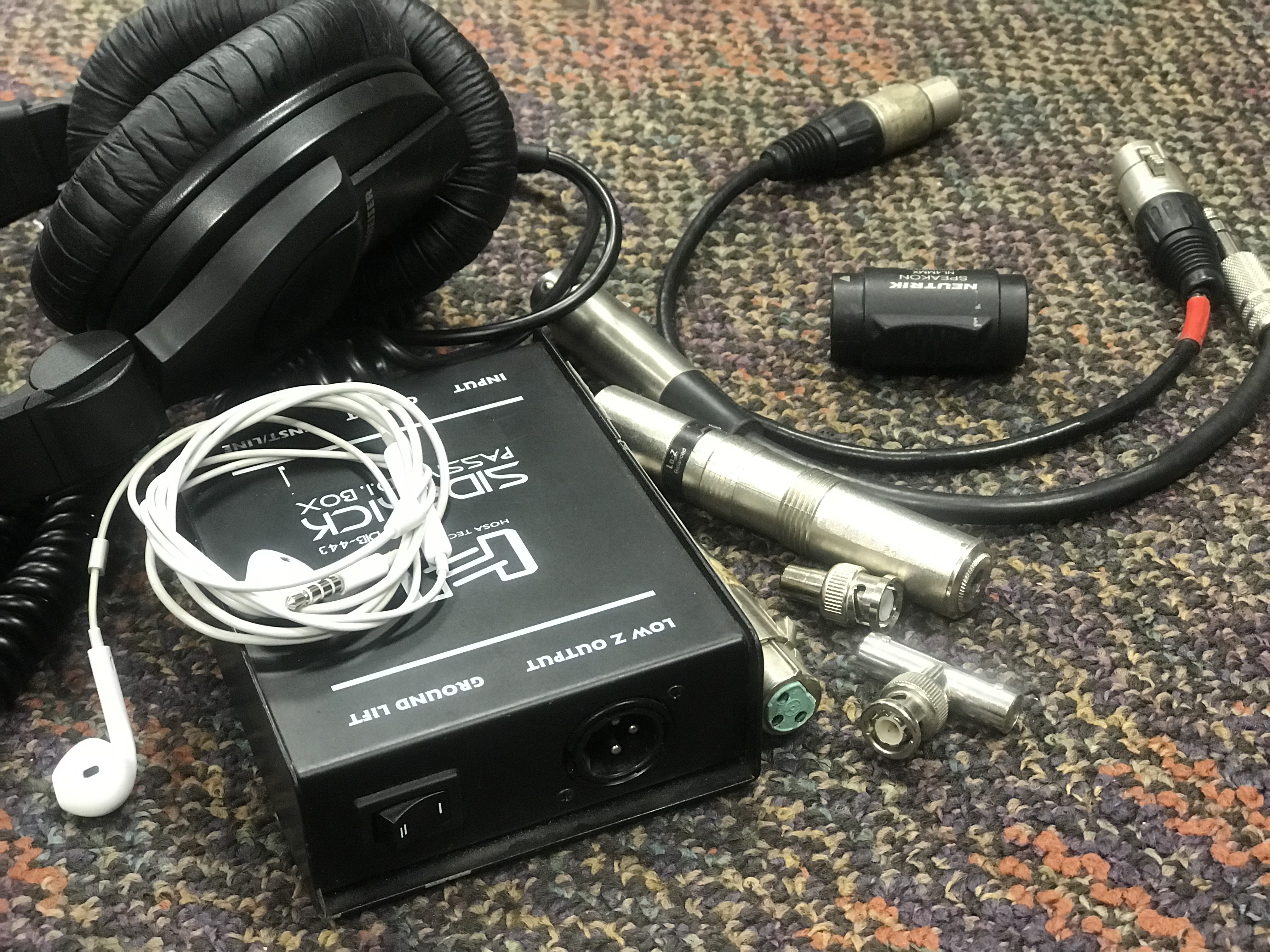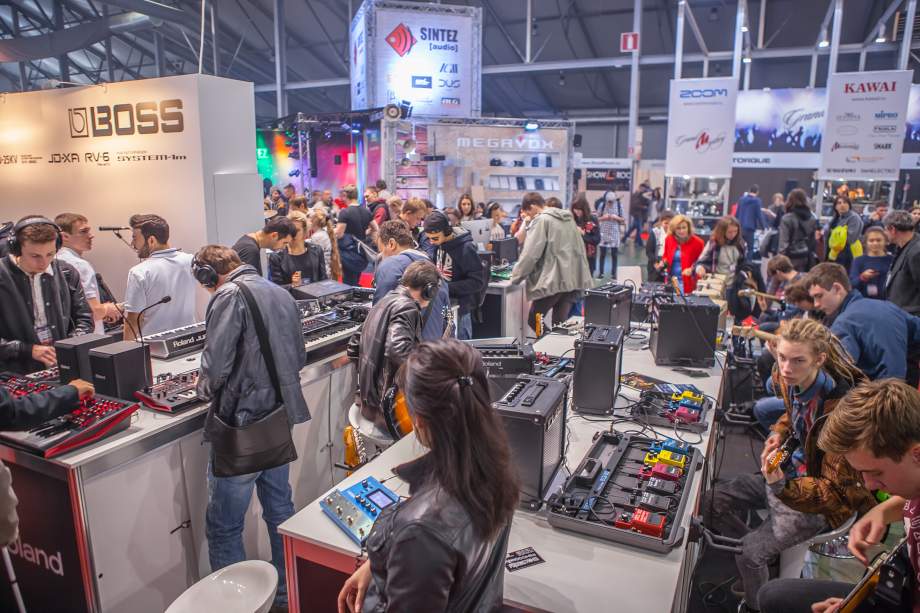
What’s In Your Go Bag?
A guide to building your audio tool stock
Picture this: You’ve just gotten a call for a contract you can’t turn down, but the gig is tomorrow morning in a city three hours away at a company that is new to you. What do you bring? What will they already have? Is it worth it to load your car with all of your worldly possessions? To ease the stress of staying prepared while still trying to not turn into that cute little junkyard monster from the Labyrinth (where my 80s babies at), I’ve prepared a list of my favorite tools of the trade.
This is my go-bag. There are many like it, but this one is mine
Alright, so my go bag isn’t a bag at all, it’s a case. My case of choice is the Pelican 1510 Case, and I purchased mine for half price on nalpak.com. Because I am obsessed with Konmari Method organization, I also use a divider that is specifically made for this case. I also have the mesh zipper lid storage attachment. What can I say? I love boxes, bags, and compartments. I prefer the Pelican to a soft tool bag because I can throw it around, leave it outside, dunk it in a pool, and my things will all stay safe inside this watertight, crushproof, dustproof, lockable case. It’s also the FAA maximum carry on size and features a retractable extension handle. Plus, you can put rad stickers on it. That’s the mark of a real pro.
If you can’t duck it, you might as well…pony up and buy a real roll of tape.
That tape is gaff tape, the tape we all know and love. I regularly work with a few companies that always have a steady supply of gaff tape in all colors and sizes, so it threw me off the first time I took on a job at a company that had no gaff tape to offer! In a pinch, I have been able to find gaff tape in local camera shops at a ridiculous marked-up price, but generally speaking, the best place to find gaff tape is on the interwebz. I order all of my tape from shop.bmisupply.com, and I’m able to curate my tape box with different colors, widths, and even different kinds of tape. My standard gaff tape of choice is 2” black. I also always make sure I have a few colors of electrical tape and a roll of white console tape. All of this can be purchased through the aforementioned vendor.
Testers, testers, one, two, one two…
When starting a new gig, you never know what kind of system you’re going to walk into. You would also be surprised at how often the house crew answers your questions with a shrug of the shoulders, so it’s probably going to be on you to test all that ails you. I never leave home without my dbx CT3 Cable Tester. This is, hands down, the best cable tester I have ever had. It supports testing of DMX, Speaker Twist, XLR, DIN, RJ45, RJ11, TRS, 1/8”, Phono, and BNC. I still haven’t told you the best part. This thing splits in half so that you can check connections that are on opposites sides of the building! If that’s not magic, I don’t know what is. I also carry my whirlwind Qbox everywhere I go. This will satisfy all of your TS/XLR testing needs, but also features a wee little speaker so you can send signal through your line and hear it out of the QBox. This comes in really handy for running monitor lines ahead of receiving speakers or setting up a line out for a video live feed. I got both of these little lifesavers from fullcompass.com.
Microphones, adapters, and cables, oh my!
Ok, it’s not up to you to provide all of the gear for a space unless that’s what you’ve been hired to do, but, again, you never know what little odds and ends they might be missing. I learned the hard way that it’s a good idea to keep a little stash of adapters with me; XLR M-M and F-F, TRS, NL4, BNC, and RCA barrels, and BNC-RCA. I also keep and spare XLR and TRS cable, a DI Box, and a SM58….just in case. Trust me on this; I have been the hero many times for having one of these available.
I hate labels, except when I need them.
The only things I love more than compartments are printed labels. I love how uniform they look, and I love how easy it is to read them in low light situations. I’ve been carrying around the Brother P-Touch I picked up from Office Depot 8 years ago, and it’s never led me astray. #Protip on applying printed labels to anything: Always use a piece of electrical tape under the label. When you’re ready to change out that label, you’ll need a lot of time and patience to peel that thing off tiny piece by tiny piece unless there’s a hearty strip of electrical tape underneath holding it all together. You know what else you can label? Your pelican.
Tools!
This is where I sometimes go overboard. I have packed and repacked my go bag so many times because I guess I think I’m solely responsible for building a mansion when I get called for a load-in. Surprisingly enough, I’ve never been asked to do so! When I’m able to think logically about packing tools, I pack a cordless drill/driver (mine is a Milwaukee M12), a pack of various bits, a precision screwdriver set, an Allen set, a crescent wrench, a headlamp, and a soldering iron with all necessary accessories. Also, never leave home without your multitool. Mine is the Leatherman Wave, and I love it with all my heart. I don’t know where it came from; I got mine from Santa several years ago.
Safety First
Again, I tend to go overboard because what if I end up on the Titanic and I’m the only one that has any medical experience from all of my viewed episodes of Grey’s Anatomy, and I don’t have a suture kit or a defibrillator with me?!!! Y’all are learning so much about me today. So obviously none of those things are going to happen at your gig, so really, just make sure you have what you need to stay safe. A small first aid kit, your earplugs, sunblock, and some work gloves should do it. Maybe a mobile CT Scanner. But that’s it.
All of the other things
Don’t forget the things that make your job go smoothly. Do you need in-ears on this gig? What about headphones? Flash drives are always useful. A snack? An emergency twenty-dollar bill? I like to be a problem solver, so if I have something I think will be useful to another department in a pinch, I might pack that too. My go bag has a few shackles rolling around in there, a safety cable, a small mixed box of screws, various apple adapters, and an IEC.
At the end of the day, your go-bag inventory is entirely up to you, but this is what works well for me. I got to the point where I had some things in my car, some things in my closet, some things I would leave at various sites I would frequently work, and that just was not doing it for me. Having everything in one super stickered-up, the rad little case is definitely my aesthetic. Give it a try; you won’t regret it.

